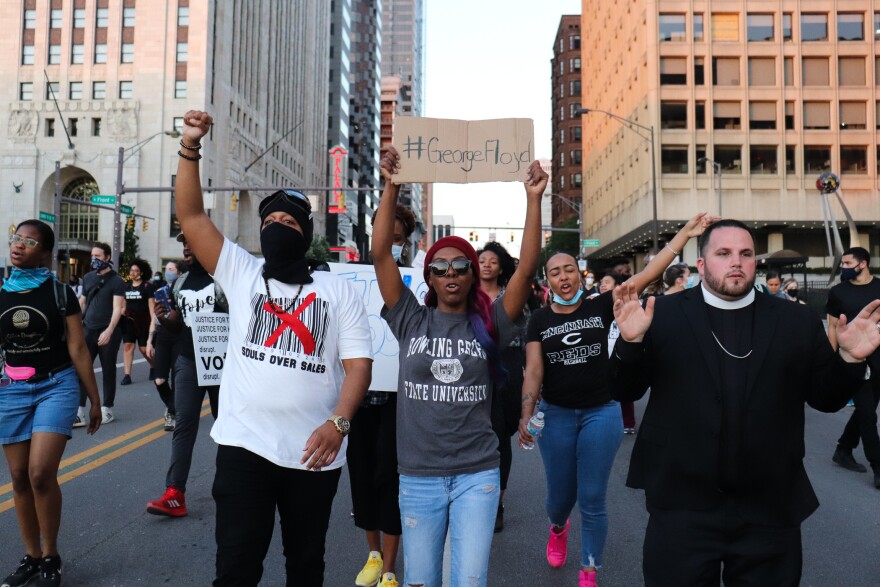Columbus Police officers should be barred from using force to disperse peaceful demonstrators, a group of anti-racism protesters is arguing in a hearing underway in federal court.
The multi-day hearing that began Monday in Columbus stems from a federal lawsuit filed in July on behalf of more than two dozen protesters seeking monetary damages for injuries sustained in clashes with police after the death of George Floyd.
The lawsuit describes peaceful demonstrators and bystanders being beaten, fired on with wooden and rubber bullets, and unlawfully arrested during protests in late May and June.
"Defendants Sergeant and Officers purposefully used excessive force to punish one or more Plaintiffs and other demonstrators, to deter them from continuing to protest and others from joining a protest with which they disagreed, and to reclaim the streets," the lawsuit reads. "Defendants Sergeant and Officers maliciously prosecuted one or more Plaintiffs to punish them and deter other demonstrators from continuing to protest."
The lawsuit alleges that lead plaintiff Tammy Fournier Alsaada, a community activist, was pepper-sprayed without provocation after receiving permission to walk through a line of police to discuss the arrests of some protesters.
In this week's hearing, attorneys will argue for an injunction banning Columbus Police from violent enforcement actions involving nonviolent protesters. Attorneys also say police body cameras should be used during protests and badge numbers displayed even on riot gear.
The city opposes the request, arguing the police department has since changed its policies to implement most of what is being requested. Although Mayor Andrew Ginther issued restrictions on when police can use chemical agents like tear gas, police continued to deploy it against protesters last summer.
Columbus City Council in September tabled a proposed ordinance prohibiting the use of tear gas against nonviolent crowds, and regulating how officers can use it.
In December, the state adopted a policy for police handling of mass protests that requires a minimum use of force. A new deadly force standard also prohibits chokeholds and neck restraints except when officers are justified in using deadly force to defend themselves or others from serious physical injury or death.





